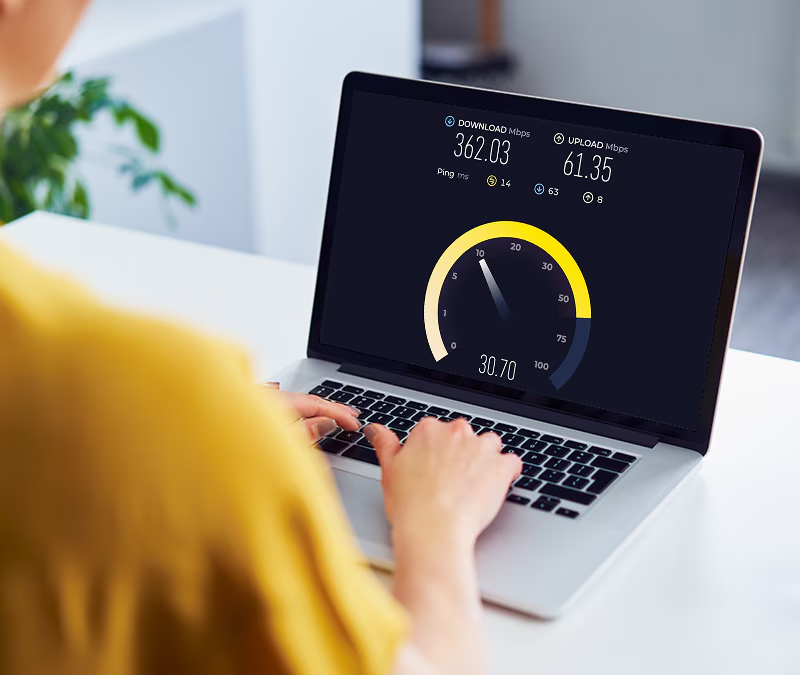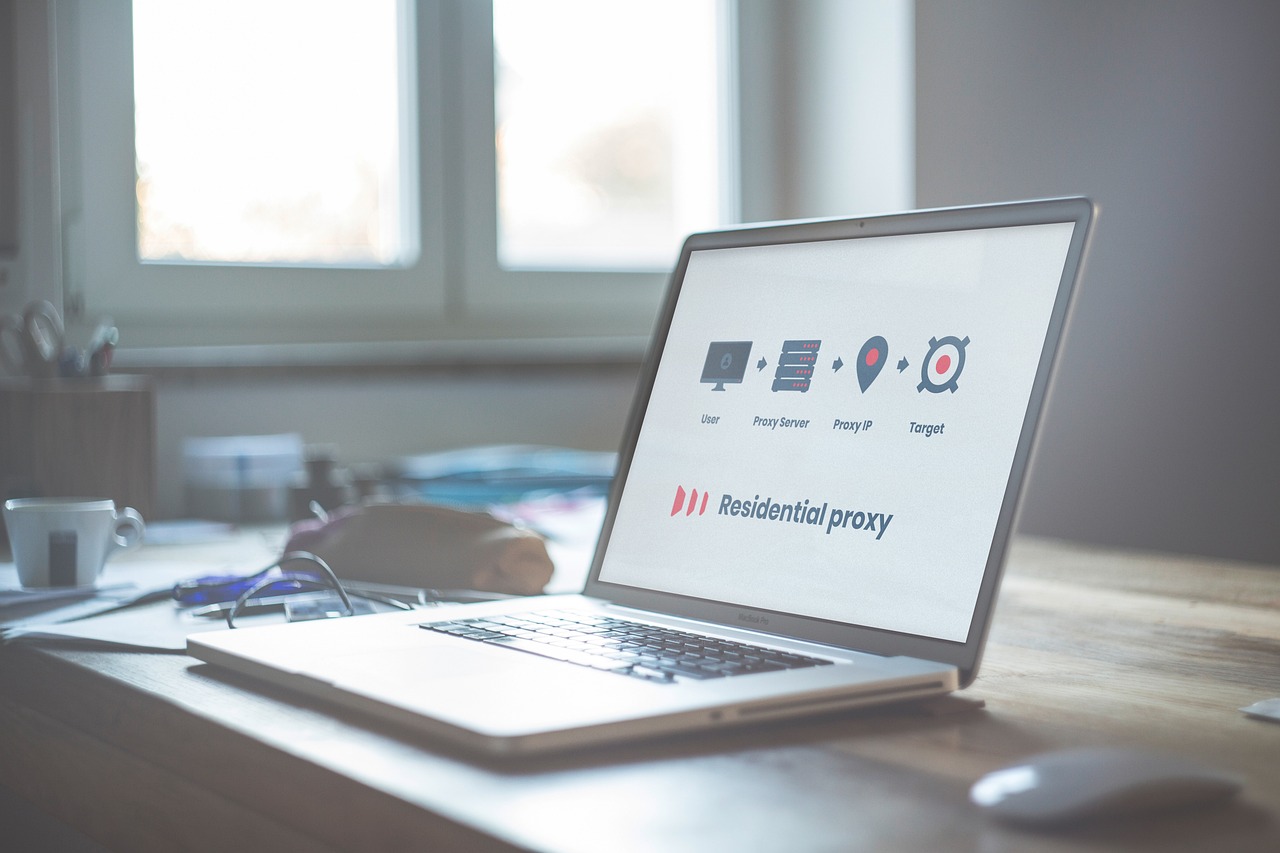Fast download speed is more than just a convenience, it’s essential. It powers smooth video calls, quick file downloads, streaming, and gaming. Yet, many of us face buffering,slow downloads, or lag. It’s usually not your device, but your internet speed that’s causing trouble.
In this guide, we’ll explain what download speed really means, why it’s slow sometimes, and share 10 simple, effective ways to make your downloads faster. Plus, there’s a visual snapshot of how global average speeds have improved over the years.
Understanding Download Speed
What is download speed?
It’s how fast data travels from the internet to your device. Measured in megabits per second (Mbps), it tells you how much data you can download each second.
Mbps vs MB/s
- 1 MB/s (megabyte per second) = 8 Mbps.
- Example: If your plan says 100 Mbps, your download speed tops around 12.5 MB/s.
Download vs Upload Speed
- Download speed handles data coming in, like streaming or downloads.
- Upload speed handles data going out, like video calls or file uploads.
- Most plans offer faster download than upload speeds.
Factors that affect speed
Distance to your ISP, router hardware, number of devices, interference, and connection type all play a role. If any of these are weak, your download speed can suffer.
How to improve your Wi-Fi speed
Improving your Wi-Fi speed starts with optimizing your network setup. Place your router in a central, elevated location away from walls or electronic devices that may cause interference. Use modern routers that support the latest Wi-Fi standards, such as Wi-Fi 6 or Wi-Fi 6E, for faster and more reliable connections. Limit the number of devices using the network simultaneously, and prioritize bandwidth for critical applications using Quality of Service (QoS) settings. For larger homes or areas with weak signals, consider using mesh Wi-Fi systems or range extenders. Regularly updating your router firmware and ensuring secure network access can also enhance performance and maintain consistent speeds.
Check Your Current Download Speed
Use Speed Test Tools
Visit sites like Speedtest.net or Fast.com. Run tests at different times to get accurate numbers.
Understand the Results
Compare “Download” value to your plan’s speed. If it’s much lower, something’s off.
Compare to Your Plan
Is your plan for 100 Mbps but you’re only getting 40 Mbps? It might be time to tweak your setup or contact your ISP.
10 Simple Ways to Increase Your Download Speed
1. Restart Your Modem and Router
A quick power cycle clears temporary glitches and refreshes your connection. It often gives an instant speed boost.
2. Move Closer to Your Wi-Fi Router
Walls, appliances, and electronics can weaken Wi-Fi. Place your router centrally, off the floor, and away from devices like microwaves or cordless phones to reduce interference.
3. Use a Wired Ethernet Connection
Ethernet offers reliable, faster speeds than Wi-Fi, especially helpful for streaming or big downloads.
4. Limit the Number of Connected Devices
Each device robs bandwidth. Pause background uploads, cloud syncs, or multiple streams—especially during large downloads.
5. Close Background Apps and Tabs
Apps and browser tabs can use streaming updates or syncing bandwidth. Shut them for better download performance.
6. Update Your Router’s Firmware
Outdated firmware can slow speeds. Check for updates via your router’s admin settings or app.
7. Use the Right Frequency Band: 2.4 GHz vs 5 GHz
- 2.4 GHz: farther reach, slower speeds.
- 5 GHz: faster, shorter range, best for close-range downloads.
8. Scan for Viruses and Malware
Malware or background processes can sap bandwidth. Run antivirus scans and remove threats for clean performance.
9. Upgrade Your Internet Plan
If your current speed doesn’t keep up with your needs (like 4K streaming or remote work), think about upgrading. Modern fiber plans often reach 500–1000 Mbps.
10. Contact Your ISP for Troubleshooting
If nothing works, call your provider. They may detect issues or suggest upgrades. Do a speed test and report exact numbers to help them diagnose faster.
Extra Tips for Consistently High Download Speeds
- Schedule downloads during off-peak hours when fewer users are online.
- Use a download manager to pause, resume, or optimize download traffic.
- Avoid public Wi-Fi for heavy downloads, home Wi-Fi is usually safer and more stable.
Common Myths About Download Speed
- “More expensive plans always mean faster speeds.”
Not always, network quality, router, and interference still matter. - “Closing all apps guarantees full speed.”
Helpful, but real speed also depends on router placement, interference, and signal strength.
Final Thoughts
Better download speed is not magic, it’s small, simple tweaks that make a big difference. Restart your gear, reduce interference, choose the right hardware, and run speed tests regularly. You’ll notice faster downloads, smooth streaming, and happier browsing.
Want more help optimizing your home setup? Check out our guide on boosting your home Wi-Fi network or picking the right internet plan for streaming.
FAQs
What is a good download speed for streaming and gaming?
- 25 Mbps is enough for 4K streaming or light gaming.
- 100 Mbps or more is better for multiple users or heavy users.
How can I tell if my ISP is throttling my internet?
Run speed tests at different times. Consistent slow speeds during specific tasks (like P2P) might hint at throttling. Contact your ISP for confirmation.
Does VPN use affect download speed?
Yes, VPNs encrypt traffic, which can slow down speeds, depending on the server distance and quality.
Can outdated devices slow down my internet?
Absolutely. Old devices like older phones or routers may not handle modern speeds well.
Is 5 GHz always faster than 2.4 GHz?
Yes in terms of raw speed, but 5 GHz has shorter range. Choose depending on where you’re using it.
How does distance affect my download speed?
The farther you are from your Wi-Fi router, the weaker the signal, which can slow your download speed due to more interference and data loss.
Is fiber internet worth it for faster downloads? Yes, fiber internet is often worth it for faster downloads because it offers higher speeds, low latency, and more consistent performance than DSL or cable.
Does streaming on another device affect my downloads?
Yes, streaming on another device uses bandwidth, which can slow your download speed, especially if yourinternet plan has limited capacity.
How do I increase my download speed?
A: To increase your download speed, make sure your router and modem support high-speed connections, place your router in a central location, reduce interference from other devices, limit bandwidth-heavy applications during downloads, and keep your network firmware updated. Using a wired Ethernet connection can also significantly improve speed.
How to get 50 Mbps download speed?
To achieve 50 Mbps, choose an internet plan from your provider that guarantees this speed. Ensure your modem and router support at least 50 Mbps, minimize the number of devices using the network simultaneously, and optimize your Wi-Fi setup for better coverage and reduced interference.
How to boost Wi-Fi speed?
Boost Wi-Fi speed by placing your router in a central, elevated location, updating firmware, using modern Wi-Fi standards (like Wi-Fi 6), reducing interference from walls and other electronics, limiting the number of connected devices, and using mesh systems or Wi-Fi extenders for larger homes.
How can I get 1000 Mbps download speed?
To get 1000 Mbps (1 Gbps), you need a fiber-optic internet plan or a high-speed gigabit service from your ISP. Ensure your modem, router, and devices support gigabit speeds, and use wired Ethernet connections for optimal performance. Keep your network equipment updated to maintain consistent high-speed connectivity.
Disclaimer
This content is for general advice only. Actual results vary based on your hardware, ISP, and home environment. Always refer to your service provider’s terms and test your setup before making changes.




Can you be more specific about the content of your article? After reading it, I still have some doubts. Hope you can help me. https://www.binance.info/sl/register?ref=I3OM7SCZ